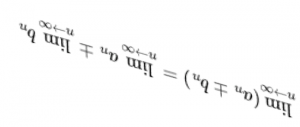 I’ve been watching the steady stream of citizen-captured videos of bad actors in our little democracy. From racist police murders, to super-Karens, to anti-Antifa gun toters exercising intimidation, the mobile phone capture is revealing—and the internet is amplifying—the angry and ugly aspects of society that were once just local phenomena. Traditional media could promote them, but only when the events fit the channel restrictions on content, time, relevance, and taste. Now the channels are constantly expanding and the nascent ugliness is too.
I’ve been watching the steady stream of citizen-captured videos of bad actors in our little democracy. From racist police murders, to super-Karens, to anti-Antifa gun toters exercising intimidation, the mobile phone capture is revealing—and the internet is amplifying—the angry and ugly aspects of society that were once just local phenomena. Traditional media could promote them, but only when the events fit the channel restrictions on content, time, relevance, and taste. Now the channels are constantly expanding and the nascent ugliness is too.
Positive effects of this newfound awareness include policy changes like the requirements of body cameras for police, though some have argued that such videos violate the privacy of the subjects of police enforcement as often as they mitigate illegal behavior on the part of the police. Still, there is no going back. I purchased Google Glass during the beta period and experimented with the unit. I still own it and it still boots up. When they first came out there were reports of violent actions by people who were unhappy being subject to potentially always-on video recording. Now we have “Hey Siri, I’m being pulled over” audio triggers that are designed to enhance one’s recourse in the event of police misbehavior. Meanwhile, drones and license plate scanners by private companies can be subscribed to by police to be able to locate cars anywhere in metro areas quickly and efficiently, while at the same time the legality of attached GPS transponders for tracking suspects is constantly under judicial scrutiny. And facial recognition systems are racially biased, resulting in false-positive arrests of racial minorities (and likely others, too).
There is an entire field of Continental Philosophy that derives from Marxist theory and that goes by the title “critical theory.”… Read the rest






